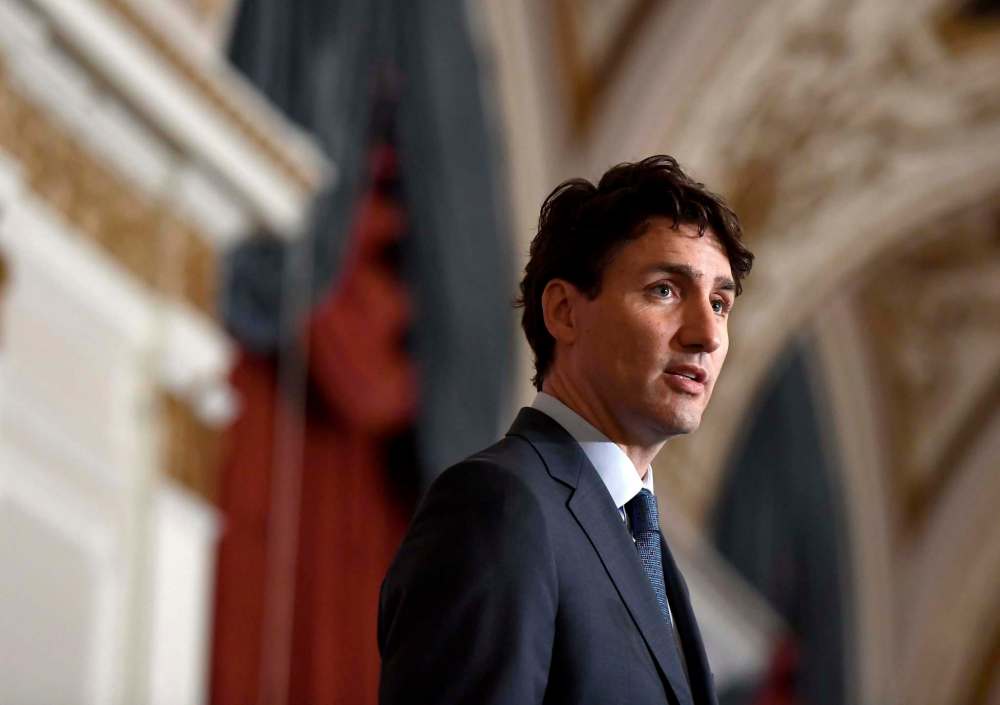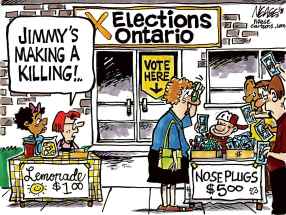If cannabis possession isn’t a crime, they shouldn’t be criminals
Read this article for free:
or
Already have an account? Log in here »
To continue reading, please subscribe:
Monthly Digital Subscription
$0 for the first 4 weeks*
- Enjoy unlimited reading on winnipegfreepress.com
- Read the E-Edition, our digital replica newspaper
- Access News Break, our award-winning app
- Play interactive puzzles
*No charge for 4 weeks then price increases to the regular rate of $19.00 plus GST every four weeks. Offer available to new and qualified returning subscribers only. Cancel any time.
Monthly Digital Subscription
$4.75/week*
- Enjoy unlimited reading on winnipegfreepress.com
- Read the E-Edition, our digital replica newspaper
- Access News Break, our award-winning app
- Play interactive puzzles
*Billed as $19 plus GST every four weeks. Cancel any time.
To continue reading, please subscribe:
Add Free Press access to your Brandon Sun subscription for only an additional
$1 for the first 4 weeks*
*Your next subscription payment will increase by $1.00 and you will be charged $16.99 plus GST for four weeks. After four weeks, your payment will increase to $23.99 plus GST every four weeks.
Read unlimited articles for free today:
or
Already have an account? Log in here »
Hey there, time traveller!
This article was published 05/06/2018 (2749 days ago), so information in it may no longer be current.
Ottawa legislation will soon let LGBTTQ* Canadians apply to wipe clean their criminal record of engaging in consensual same-sex acts when they were illegal.
The Expungement of Historically Unjust Convictions Act is commendable and overdue. It would also be commendable if Ottawa extended such forgiving grace to Canadians convicted of possessing marijuana.
The historic demonization of same-sex relationships and cannabis no longer reflect our modern understanding. With homosexual acts decriminalized in Canada in 1969, and with marijuana use expected to be legal in Canada by early autumn, this country’s values have moved to a more enlightened understanding on these matters.

This change in the legal status of marijuana brings an important question: what happens to people who have criminal records for possession when the plant becomes legal to possess?
Estimates of the number of Canadians fettered by convictions for marijuana possession range from half a million to a million.
These people can pay a heavy price for an indiscretion that was often committed in their youth. Even after being labelled marijuana convicts, most have gone on to be law-abiding citizens with jobs, families and positive contributions to the community.
But they continue to be dogged by the many handicaps of a criminal conviction. Crossing borders into other countries, including the U.S., is more difficult. Also, many careers are all but closed to people with criminal convictions, including finance, child care, health care, government, teaching and law enforcement.
The prime minister seems to get it. When Justin Trudeau was asked at a town hall in April 2017 what he would say to someone charged with pot possession, he replied with a personal story. When his late brother Michel was involved in a traffic accident, police at the scene found two joints in the wreckage and charged Michel with pot possession.
“When he got back home to Montreal, my dad said, ‘OK, don’t worry about it.’ He reached out to his friends in the legal community, got the best possible lawyer … we were confident that my little brother wasn’t going to be saddled with a criminal record for life.” The PM went on to say it’s unacceptable people without similar connections or money are treated unfairly when “Canada is supposed to be fair for everybody.”
Unfortunately, Mr. Trudeau’s understanding of the unfairness of marijuana convictions is not reflected in the the Cannabis Act that is currently up for a crucial vote in the Senate, the last step of the legislative process. The bill doesn’t mention past marijuana convictions.

Allowing convictions to be expunged is not as easy as waving a magic wand. Drug possession records are stored at three levels of government and policing, without a unified data base. Some marijuana-possession convictions are included in a package of related charges, or listed under other sections such as “possession of a narcotic.”
But Canada can learn from other jurisdictions. At least nine American states, including Colorado, Maryland and Oregon, have made it easier to have some marijuana charges sealed or thrown out completely.
Unfortunately, to Canada’s shame, the decision to allow erasure of convictions for homosexual acts comes five decades after such acts were decriminalized. Some of the 9,000 LGBTTQ* people saddled with such convictions died before they could see their country finally remove their designations as criminals.
People convicted of marijuana possession shouldn’t have to wait so long. After legalization, Ottawa should move promptly to free these citizens from the shackles of convictions. When it’s no longer a crime, they should no longer be criminals.









